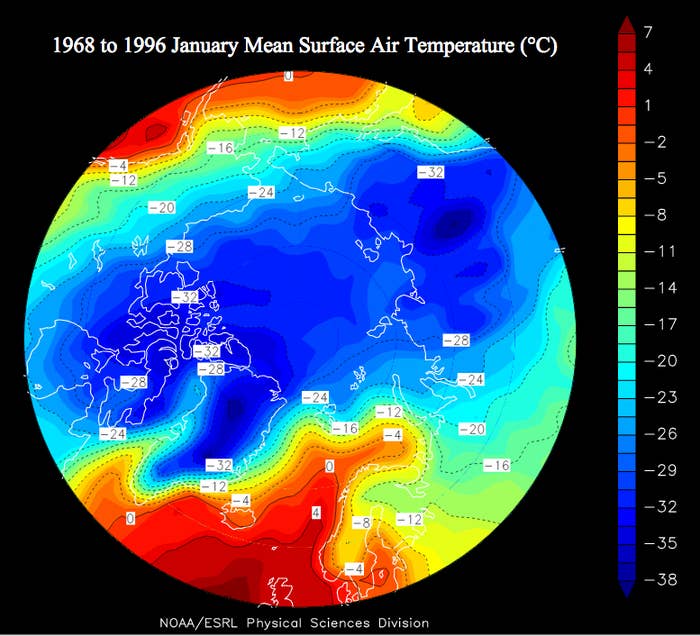
A scientific observatory has reported that temperatures near the North Pole are wildly above normal – above freezing point in midwinter.
The International Arctic Buoy Program recorded temperatures at or above freezing point for three hours on Wednesday, reaching a high point of 0.7°C.
One of its buoys, number 6400476, in the very high Arctic – around 200 miles from the Pole – recorded the temperature shooting up from -25°C at 3pm GMT on Tuesday 29 December to its high point between noon and 2pm the following day.
Average temperatures for this time of year around the North Pole are around -30°C.

The US National Science Foundation said that temperatures at the Pole itself didn't quite reach freezing.
It had been forecast, but a temporary buoy dropped from an aeroplane near the Pole found that they only reached -8.52°C. This is still wildly above normal, but not quite as warm as it got a few hundred miles away.
It's because of an enormous storm that has been battering the Arctic – the same one that has been flooding the UK.
0700Z Meteosat10 enhanced IR #satellite image of the intense #hurricane force low over #Iceland.
Hurricane-force winds, gusting up to 100mph, are pushing warm air into the Arctic. It's the third-lowest-pressure storm ever recorded in the region.
A Canadian meteorologist, Nathalie Hasell, told AFP: "It's a very violent and extremely powerful depression, so it's not surprising that hot temperatures have been pushed so far north.
"This deep depression has pushed hot air as far as the North Pole, where temperatures are at least 20°C above normal – at around freezing point, between 0 and 2°C."
The Arctic has seen some of the most dramatic effects of climate change of anywhere in the world.
On average, the Earth has warmed by 1°C. But the Arctic has seen double that. The warming, the storm, and the UK floods, are all linked to climate change, scientists have said – although they are especially dramatic this year because of the climate phenomenon known as El Niño.
